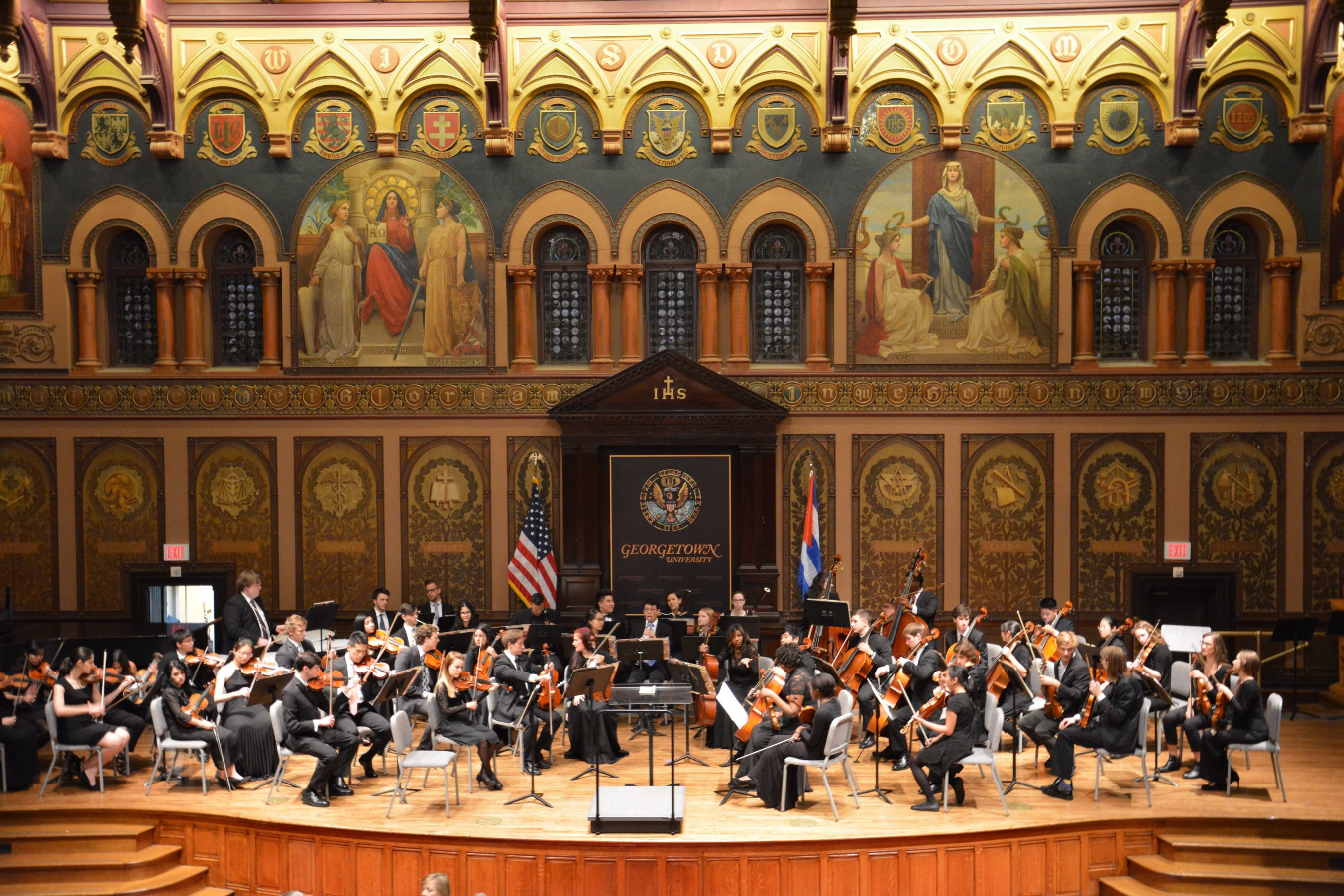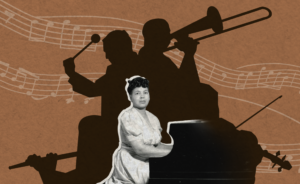Eight Cuban musicians performed alongside the Georgetown University Orchestra and Concert Choir in Gaston Hall. The concert was the culmination of the Music for Cuba exchange program, created by music director Angel Gil-Ordóñez this year, which sent twelve members of the Georgetown orchestra to Havana, Cuba, for a week in March.
The concert, held on April 22, was free and open to the public. It featured Cuban conductor José Antonio Méndez Padrón, from the Cuban conservatory Lyceum Mozartiano de La Habana, as well as conducting by Gil-Ordóñez and professor Frederick Binkholder, the choir’s director. The combined orchestra and choir played Beethoven’s Symphony No. 4, which the Georgetown orchestra performed on their last night in Cuba.
Launched as part of the new Latin American Initiative at Georgetown, the Music for Cuba program aims to promote cultural understanding between Cuba and the United States in the wake of the countries’ recent shift in diplomatic relations.
“I thought, what an extraordinary opportunity to bring young musicians together,” said Gil-Ordóñez, who began developing the project after the lift of the Cuban embargo. “And what better means than an orchestra, in which you don’t even need language. What a phenomenal way to go beyond the stereotypes, lack of knowledge about each other.”
The Cuban musicians and two accompanying staff members spent eight days in Georgetown, engaging in both cultural activities and orchestra rehearsals. They took tours of Washington, attended Georgetown classes, and met with faculty. All attend the Lyceum Mozartiano de La Habana, located in the country’s capital, and intend to pursue music professionally.
Gil-Ordóñez noted that this contrasts with the Georgetown orchestra members, none of whom are music majors. In his view, this will both musically challenge the Georgetown students and encourage an exchange of ideas with the Cuban orchestra that goes beyond just concert pieces.
Claire Abijay (COL ’19), one of of the students who traveled to Havana last month, wrote in an email to the Voice that the Cuban orchestra was inspiring. “Having [them] playing alongside us really pushed the orchestra as a whole to give our best performance,” she wrote.
These sentiments were echoed by Tony Martínez, who works for a nonprofit that promotes Hispanic art and culture and helped to facilitate the program. “Music is capable of communicating things very hard to express in other languages,” he wrote to the Voice. “The things we have in common are more than the things that divide us.
This is the first year of the Music for Cuba project, which Gil-Ordóñez plans to continue annually with the assistance of Ulises Hernándes Morgadanes, the founder and director of the Lyceum Motzartiano de La Habana. Hernándes Morgadanes said the visit and concert far exceeded his expectations, and noted the importance of music in connecting people and communities despite difference.
Image Credits: Generacion Asere






